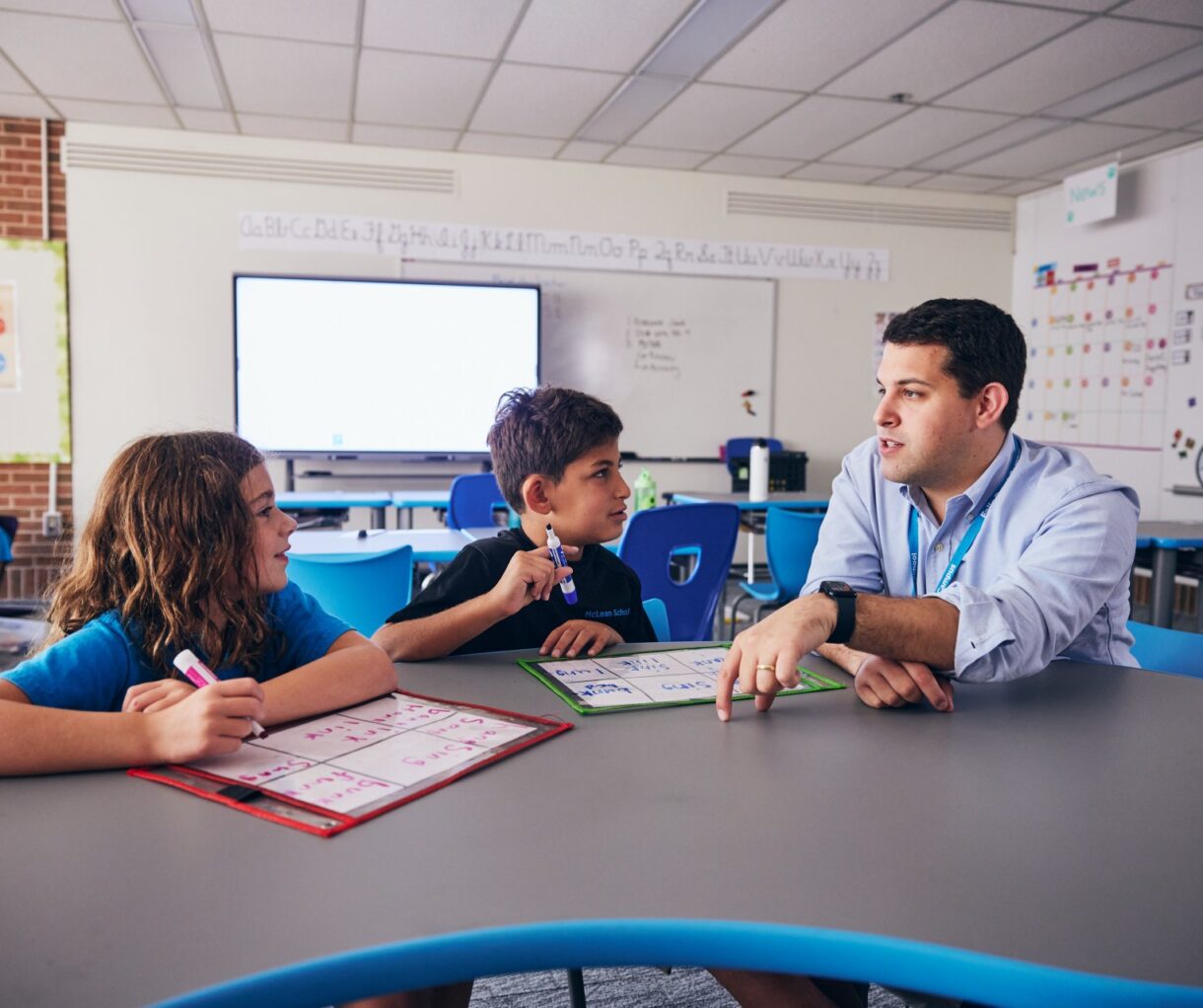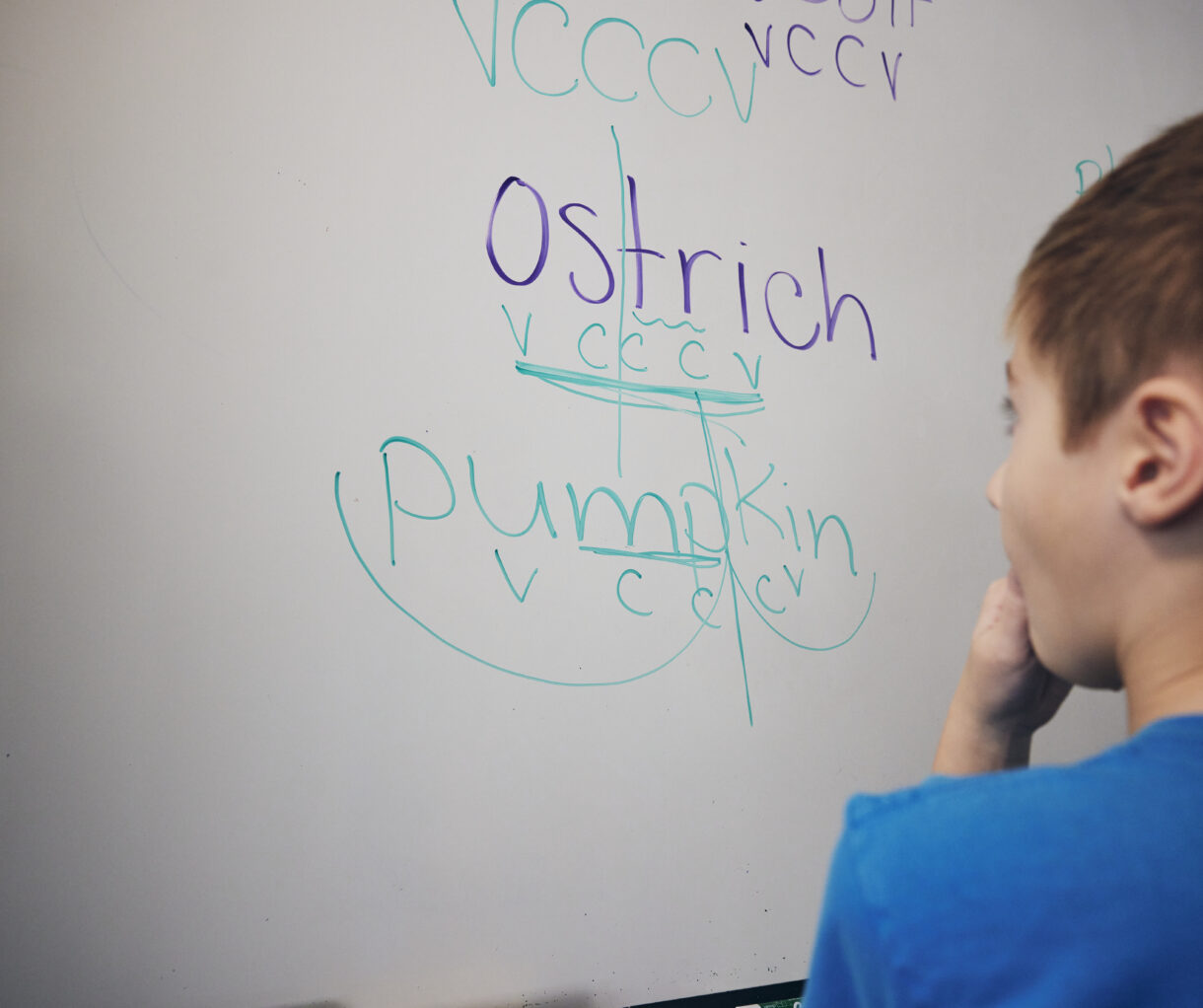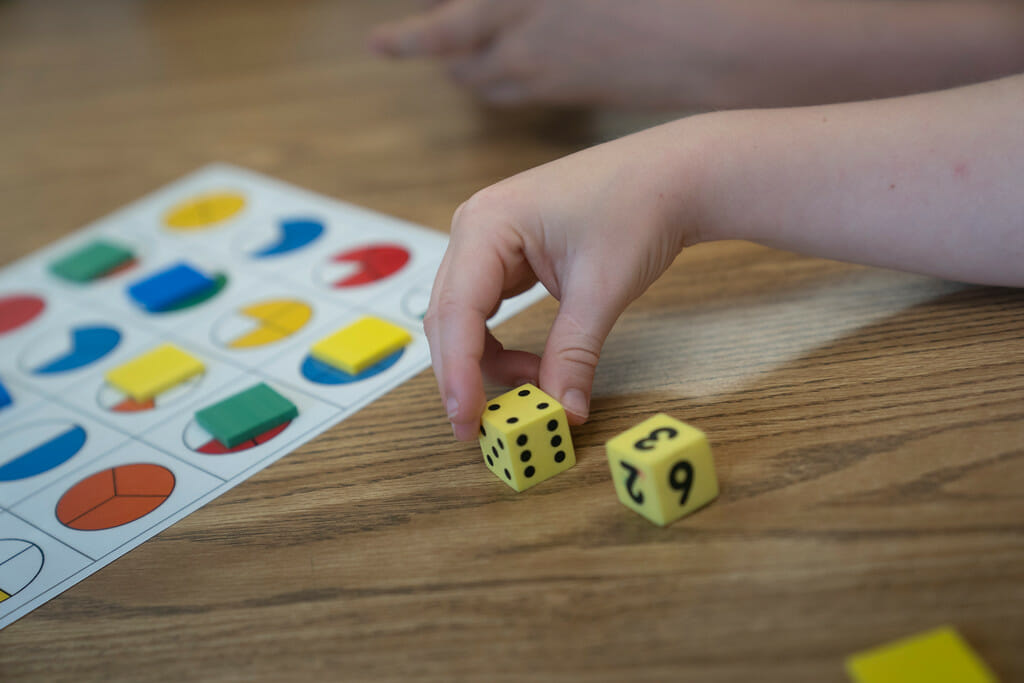Dyslexia
Dyslexia
DyslexiaEmbedded Classroom Support for Elementary, Middle & High School Students
When students with dyslexia struggle at school, it’s not because they aren’t bright and capable. Instead, it’s because the school fails to leverage their innate strengths and abilities and provide systematic, structured literacy lessons based on the Science of Reading that ensure students learn to read proficiently.
Best Practices, Best TeachersEarly Intervention of Dyslexia in Lower & Middle School
Everything we do at McLean School is rooted in research and best practices of structured literacy. Orton-Gilingham is a research-based approach to teaching phonemic awareness, phonics, syllable division, and morphology. Orton-Gillingham is beneficial for all students, and vital for those with dyslexia.
100% of McLean’s Kindergarten-Grade 6 homeroom teachers are trained in Orton-Gillingham and receive yearly ongoing professional development in best practices for teaching reading. Reading teachers in grade 7 and 8 reading are also trained in Orton-Gillingham.
McLean teachers also receive specific training on best practices with assessments, as well as fluency and comprehension instruction. Kindergarten to grade 8 students are placed in small reading groups and receive a structured literacy program tailored to each reader with embedded classroom support when necessary. Every day, students in Lower School practice phonemic awareness drills, sound-symbol drills, spelling, and dictation through a variety of routines, games, and texts designed to keep them engaged, excited, and motivated. Students receive small group instruction and one-on-one support when needed in Middle School, addressing deficits in phonology and orthography that hold students back, allowing them to unlock the code of reading and experience success.
Rigor & SupportHelping High School Students with Dyslexia Succeed
To continue supporting students’ reading development as they age, we’ve developed a flexible approach to literacy in the upper grades based on individual students’ needs. We continue to offer reading intervention in the Upper School to students who are not yet reading at grade level. From Kindergarten through Grade 12, we separate reading and writing classes (called English and Literature in grades 5-12), which enables us to continue to teach phonics and comprehension skills while also teaching writing mechanics, idea development, and author’s craft. At all grade levels, we encourage our students to choose from various genres, in print and digital formats, to spark individual reading interests and support passions. All teachers support students with the vocabulary and informational reading skills they need to promote success across academic content areas. Additionally, we provide a range of accommodations, including adult readers and scribes for exams, to ensure everyone’s needs are met. Using evidence-based instruction, assistive technologies, and accommodations, our students experience success in reading.
Success in ReadingOur Outcomes
If students arrive at McLean reading 1 or 2 years below grade level, our assessments show that by grade 8, they are reading at or above grade level.
Not only do our students’ self-confidence in reading grow, but their abilities do as well. Students with dyslexia and other reading challenges are taking honors and AP Literature in Upper School, and matriculating to highly selective colleges.
ComplimentaryCommunity Reading Screenings
Extensive evidence shows that struggling readers who do not receive early intervention fall behind academically, making it harder for them to catch up in later grades. If you are concerned about your child’s reading ability, we offer complimentary Acadience Reading Screenings for kindergarten to grade 3 students throughout the year.
ReadXPerts Talk Blog Series





